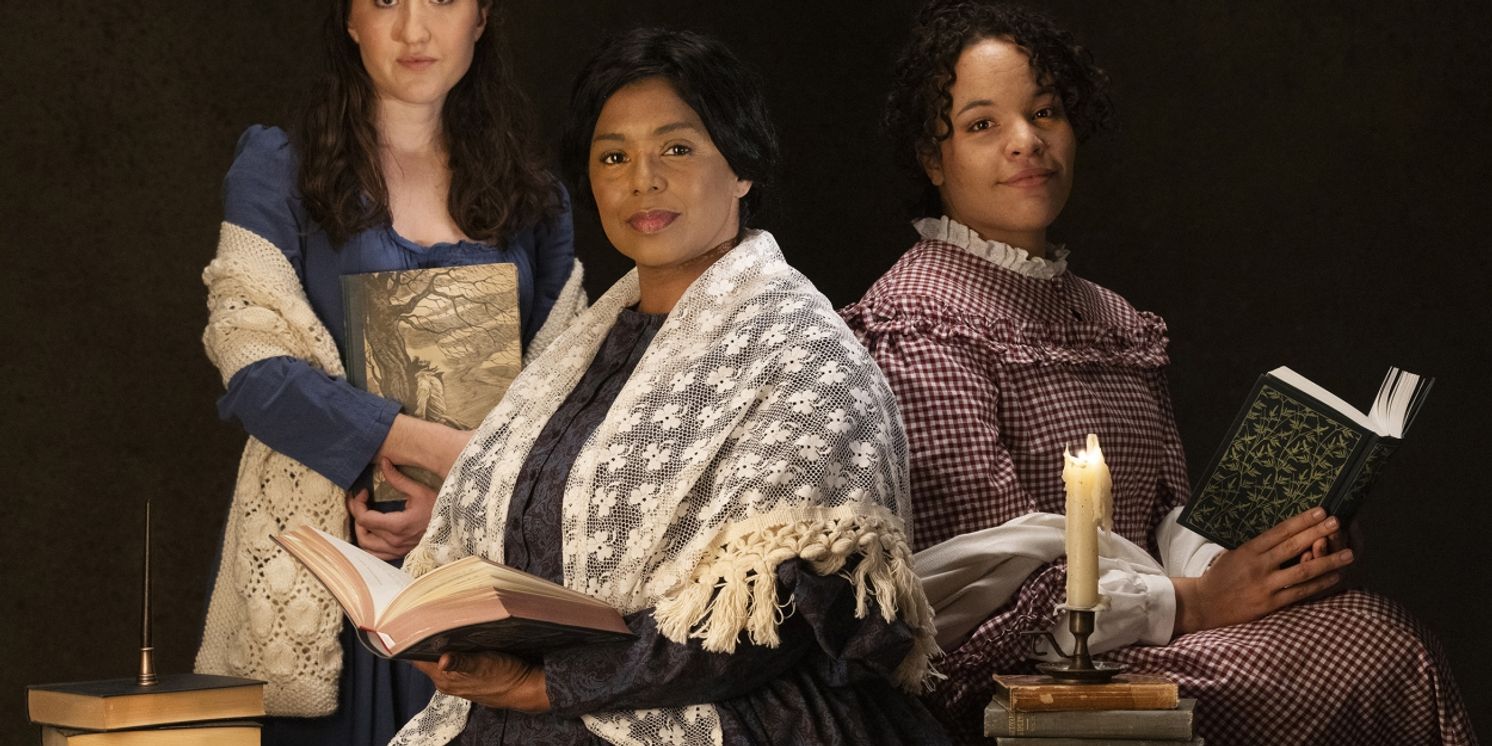Review: BRONTË Underscores Hardship and Genius of Literary Icons
The ambitious production by Scoundrel and Scamp Theatre conveys mixed results.

It takes a consummate writer to pen a qualified story about eminent writers. It's a special challenge to uncover the lives of those shrouded in mystery.
Playwright Polly Teale appears to have done that with BRONTË, a wistful tale of three English sisters who gained renown for their literary achievements. Consistent with all Victorian establishments, men dominated the publishing industry -- and though the world would eventually learn the women's identities, the Brontë sisters initially concealed their names behind male pseudonyms to feign credibility.
Suppose you already had a nominal recognition of the Brontë surname. In that case, Teale ensures a greater appreciation for the breadth of the family's collective talent, which thrives against the odds to create enduring masterpieces. Charlotte, the eldest, wrote Jane Eyre. Emily wrote Wuthering Heights; Anne, the youngest, composed poetry and published lesser-known novels: Agnes Grey and The Tenant of Wildfell Hall.
We can't overstate the cultural value of a small theater company positioned to enlighten a community. S & S is among the city's purveyors of erudite plays; the artistic team has proven that commitment for six straight seasons.
Be that as it may, the company's production of BRONTË has yet to fully mine the profundity of the sisters' existence, which paints an austere economic condition and successive losses of family members. The play is rife with cumulative grief and rosy dreams -- a significant opportunity for actors to tread the boards and speak truth to power, as it were. But I'll get to that point shortly.
An attractive, multi-level scenic design by director Bryan Falçon, assisted by Raulie Martinez, allows for exquisite staging and composition. Martinez's evocative lighting and aural landscape denotes time and setting transitions, blurring the lines between siblings and their literary alter egos.
Teale's dramatic conceit - a seamless juxtaposition of present reality and childhood memories - makes for an engaging theatrical form that justifies the Brontës' epic narrative.
On the other hand, Falçon's ensemble is grasping at straws to shape an authentic emotional arc. Uneven performances left me craving for the utter demolition of my comfort zone, as worthy tragedies ought to do. Instead, I saw a valiant effort to indicate emotions rather than embrace a genuine connection with the characters' high stakes.
Dawn McMillan may take exception to that assessment, and she's right to do so. She plays Charlotte with sagacious authority and compensates for an ensemble burdened with equivocal acting objectives. McMillan is rooted in a previous action when she enters every scene. And we're inclined to believe where she's going as the scene occludes.
Remaining cast members are only partially up to the task. Hunter Hnat, a prodigious talent and one of the hardest-working actors in Southern Arizona, takes a brief respite from The Rogue Theatre to join Falçon's band of players. He plays Branwell, the only brother whose writing talent and vaunted male privilege fail to live up to his promise. Addicted to alcohol and disgraced by his reckless affair with a married woman, he epitomizes the golden child who goes astray and returns hopeless and broken. While Hunter Hnat retains his vocal prowess and physical attentiveness, his pain is skin-deep, barely skimming Branwell's facade.
Nuance and consistency could go a long way in delivering the Brontës' haunted story. Allison Akmajian exemplifies Emily's silent eloquence with a furtive glance, but like Myani Watson, who plays Anne, the silence must be sustained with purposeful regard for the action. A ghost could do as much.
We can't speak of the Brontë siblings without acknowledging their father, Patrick, an author and a clergyman forced to raise his children in the parsonage after his wife's death. Tony Caprile has the physical constitution to delineate such a man, his voice grounded and secure. Still, in playing multiple roles without distinctive character changes, Caprile often leaves us guessing who he is once he rids of the reverend's cane.
Lastly, Elizabeth Falçon's intermittent appearances as Cathy and Bertha (two protagonists from two separate novels) are theatrical highlights of Teale's play. However, we could do without Ms. Falçon's manic choices and hyperbolic physicality. What ought to be a lyrical execution can not risk exaggeration to the point of parody.
For all its blemishes, BRONTË should be seen for its poetic audacity. It boasts some impressive design elements, not the least of which is the aforementioned set design, enhanced by Raulie Martinez's lighting -- a stunning display of chiaroscuro shades and colors. It's a gorgeous sight.
BRONTË plays through March 11. For tickets, contact the box office at (520) 448-3300. Or visit
Reader Reviews
Videos

